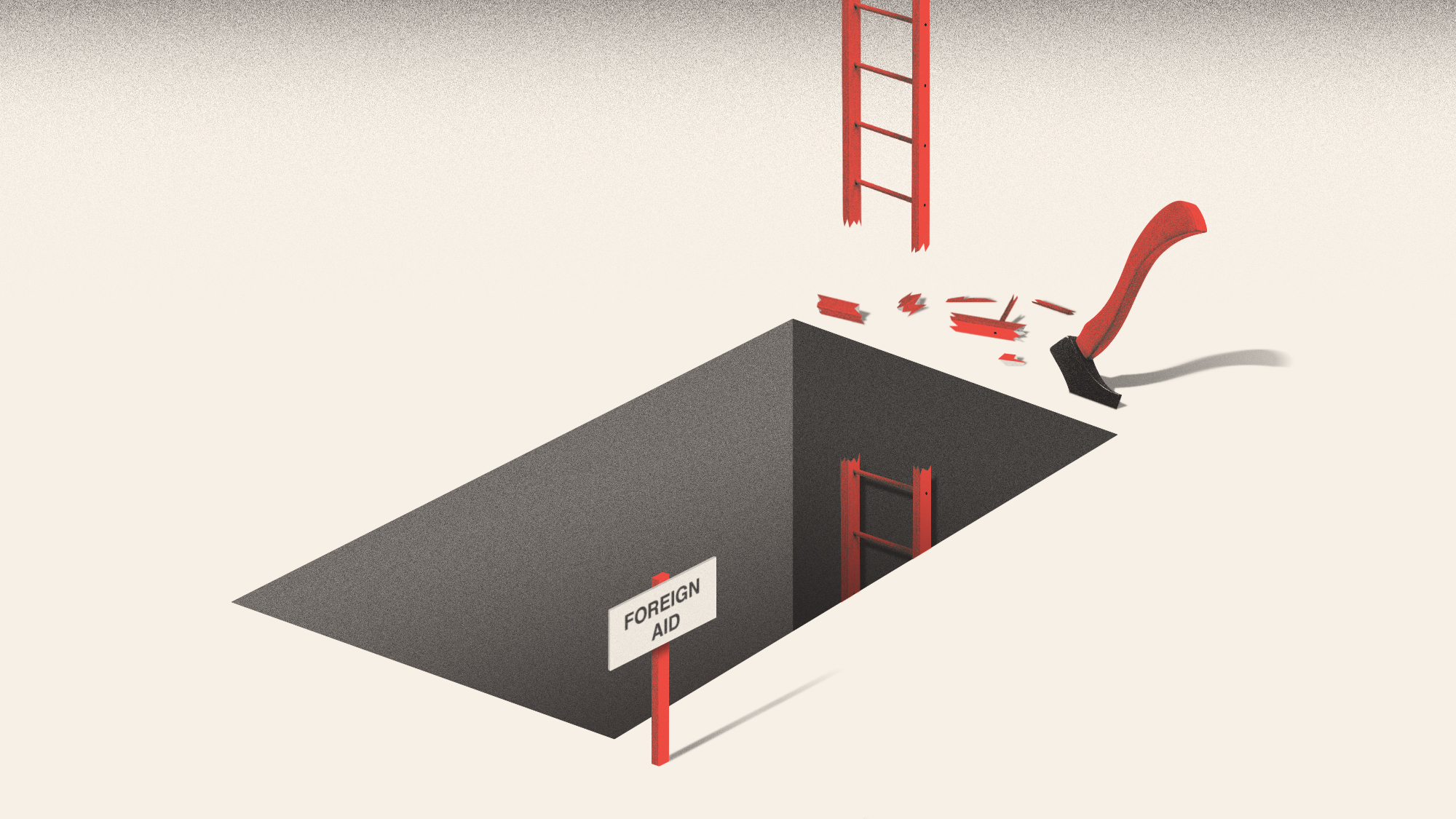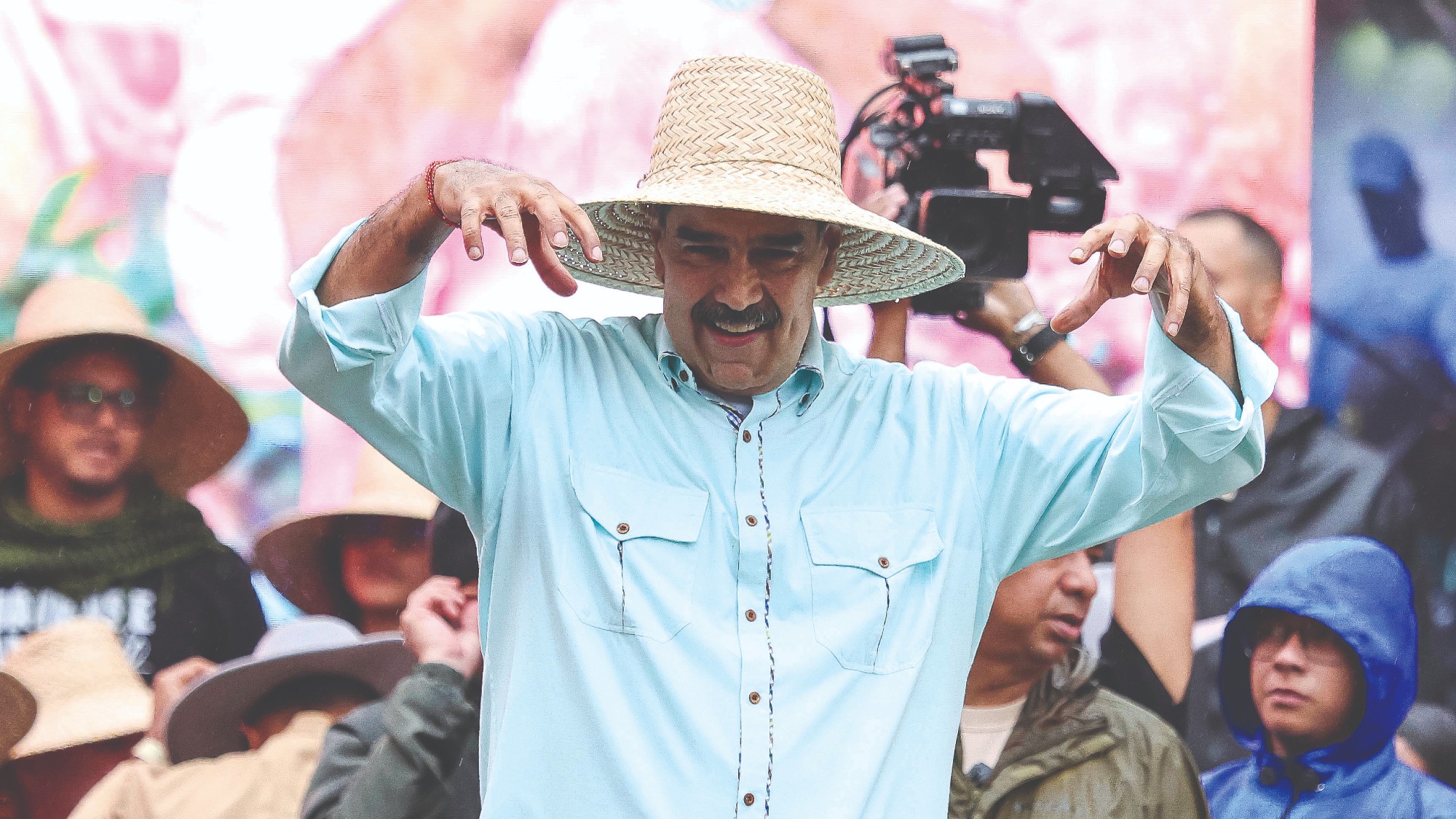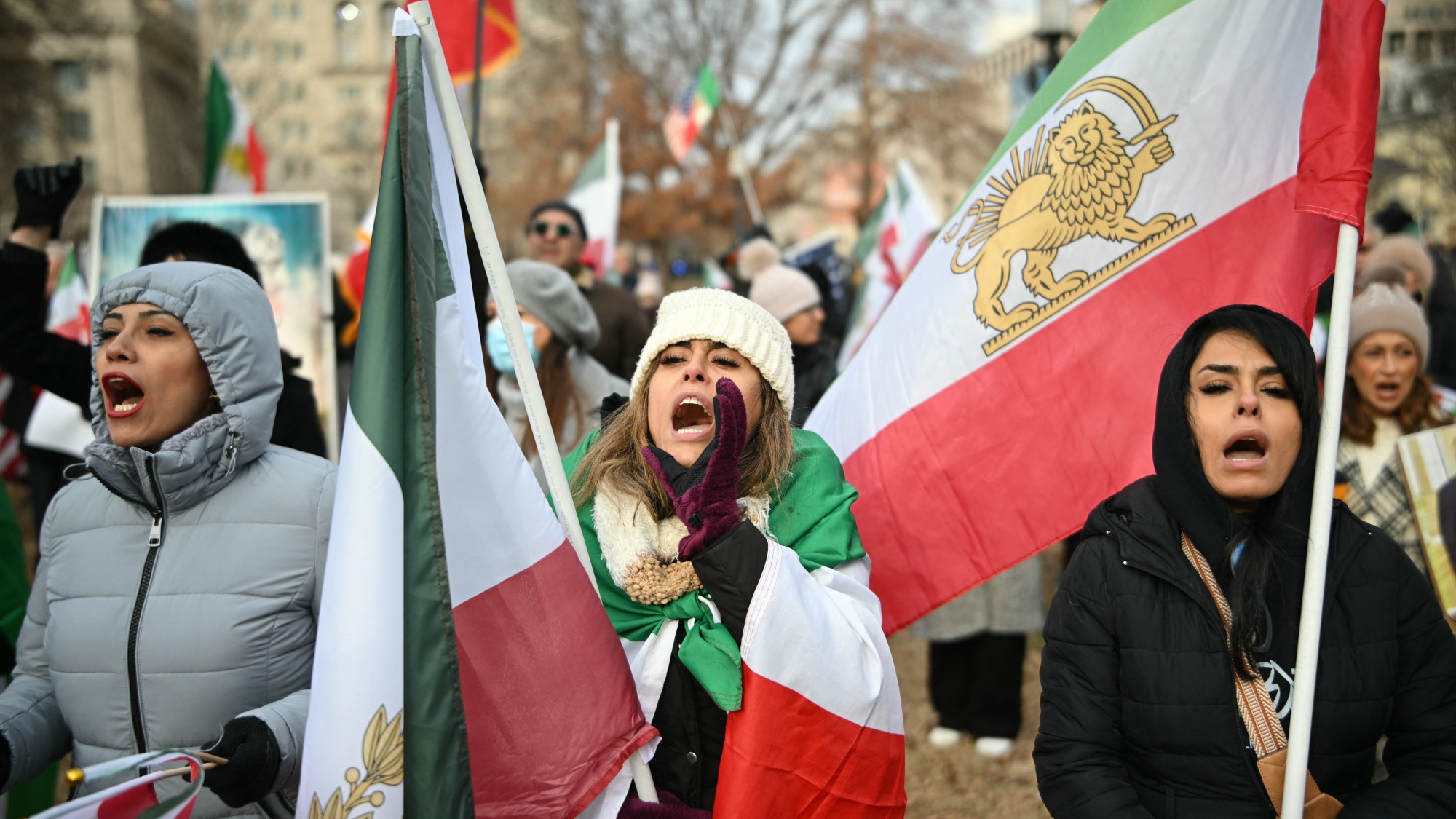What's the future for foreign aid?
President Trump's US aid freeze could change the humanitarian landscape for good

A free daily email with the biggest news stories of the day – and the best features from TheWeek.com
You are now subscribed
Your newsletter sign-up was successful
A number of development programmes and relief assistance efforts around the world have come to a halt this week after President Trump froze all foreign assistance provided by the United States, calling into question the future of foreign aid around the globe.
Even "the most fervent advocates" of US aid can see that not all programmes work well, Rachel Bonnifield, a senior fellow at the Center for Global Development, told Al Jazeera. But the sudden halt in funding has put people in a "very compromised position where they might die".
What did the commentators say?
For aid agencies, the last two weeks "have been marked by fear, chaos and confusion", said Devex. "I've got people crying. I have people saying: 'but we really need to send these medicines. Are you telling me I can't do that?'” said the leader of one humanitarian organisation.
The Week
Escape your echo chamber. Get the facts behind the news, plus analysis from multiple perspectives.

Sign up for The Week's Free Newsletters
From our morning news briefing to a weekly Good News Newsletter, get the best of The Week delivered directly to your inbox.
From our morning news briefing to a weekly Good News Newsletter, get the best of The Week delivered directly to your inbox.
The order to stop aid work, issued by Secretary of State Marco Rubio, contained an exception for emergency food aid, along with a further waiver for programmes that provide other "life-saving" assistance. "We don't want to see people die and the like," Rubio told SiriusXM. He said there would be a programme-by-programme review of which projects make "America safer, stronger or more prosperous". But leaders of aid agencies told The New York Times that "some programs will be hard to restart after a temporary shutdown, and many could disappear".
There are obvious geopolitical ramifications too. In Pakistan, the loss of US funding may push the country to seek alternative funding sources, possibly from China or the Gulf nations, said The Times of India. In Lebanon, Hezbollah is already "making moves to fill the gaps, taking advantage of the power vacuum that the US has just created", said Devex.
What next?
However unwelcome the cuts are, for some they serve as a reminder that health and welfare systems in a number of countries are overly dependent on foreign aid.
"I think these pauses may end up changing the relationship other countries have with US assistance," Bonnifield told Al Jazeera. "Our governments now know that help is coming from nowhere," Ayoade Alakija, a global health specialist from Nigeria, told the Financial Times. "They need to start funding things themselves and investing in their own health and education."
A free daily email with the biggest news stories of the day – and the best features from TheWeek.com
Jamie Timson is the UK news editor, curating The Week UK's daily morning newsletter and setting the agenda for the day's news output. He was first a member of the team from 2015 to 2019, progressing from intern to senior staff writer, and then rejoined in September 2022. As a founding panellist on “The Week Unwrapped” podcast, he has discussed politics, foreign affairs and conspiracy theories, sometimes separately, sometimes all at once. In between working at The Week, Jamie was a senior press officer at the Department for Transport, with a penchant for crisis communications, working on Brexit, the response to Covid-19 and HS2, among others.
-
 Quentin Deranque: a student’s death energizes the French far right
Quentin Deranque: a student’s death energizes the French far rightIN THE SPOTLIGHT Reactions to the violent killing of an ultra-conservative activist offer a glimpse at the culture wars roiling France ahead of next year’s elections.
-
 Secured vs. unsecured loans: how do they differ and which is better?
Secured vs. unsecured loans: how do they differ and which is better?the explainer They are distinguished by the level of risk and the inclusion of collateral
-
 ‘States that set ambitious climate targets are already feeling the tension’
‘States that set ambitious climate targets are already feeling the tension’Instant Opinion Opinion, comment and editorials of the day
-
 ‘The censorious effect is the same, even if deployed covertly’
‘The censorious effect is the same, even if deployed covertly’Instant Opinion Opinion, comment and editorials of the day
-
 Vietnam’s ‘balancing act’ with the US, China and Europe
Vietnam’s ‘balancing act’ with the US, China and EuropeIn the Spotlight Despite decades of ‘steadily improving relations’, Hanoi is still ‘deeply suspicious’ of the US as it tries to ‘diversify’ its options
-
 The ‘mad king’: has Trump finally lost it?
The ‘mad king’: has Trump finally lost it?Talking Point Rambling speeches, wind turbine obsession, and an ‘unhinged’ letter to Norway’s prime minister have caused concern whether the rest of his term is ‘sustainable’
-
 Does standing up to Trump help world leaders at home?
Does standing up to Trump help world leaders at home?Today’s Big Question Mark Carney’s approval ratings have ‘soared to new highs’ following his Davos speech but other world leaders may not benefit in the same way
-
 Le Pen back in the dock: the trial that’s shaking France
Le Pen back in the dock: the trial that’s shaking FranceIn the Spotlight Appealing her four-year conviction for embezzlement, the Rassemblement National leader faces an uncertain political future, whatever the result
-
 EU-Mercosur mega trade deal: 25 years in the making
EU-Mercosur mega trade deal: 25 years in the makingThe Explainer Despite opposition from France and Ireland among others, the ‘significant’ agreement with the South American bloc is set to finally go ahead
-
 Maduro’s capture: two hours that shook the world
Maduro’s capture: two hours that shook the worldTalking Point Evoking memories of the US assault on Panama in 1989, the manoeuvre is being described as the fastest regime change in history
-
 Unrest in Iran: how the latest protests spread like wildfire
Unrest in Iran: how the latest protests spread like wildfireIn the Spotlight Deep-rooted discontent at the country’s ‘entire regime’ and economic concerns have sparked widespread protest far beyond Tehran